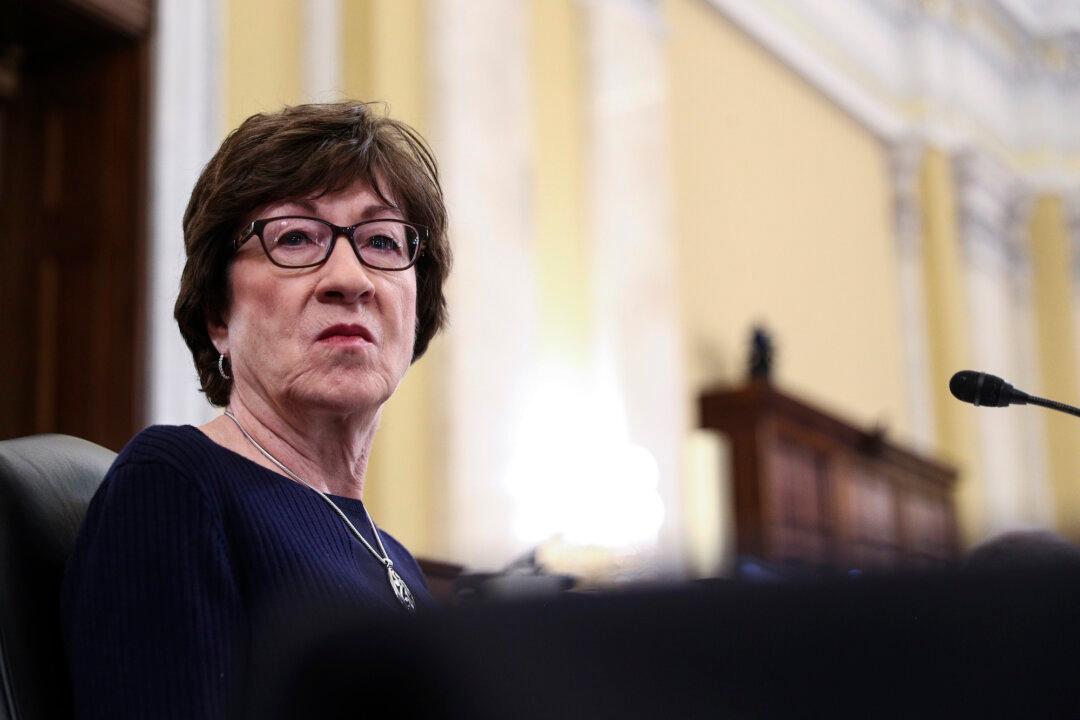A group of around 25 conservative Maine Republicans has split from the state Republican Party to form a new grassroots caucus, days after the state GOP decided against censuring Sen. Susan Collins (R-Maine) for her vote to convict former President Donald Trump in his second impeachment trial.
John DeVeau, who chairs the Aroostook County Republican Committee—one of the committees that voted to censure Collins—said in a statement on March 29 that the group has formed the Maine Grassroots Republican Caucus.





